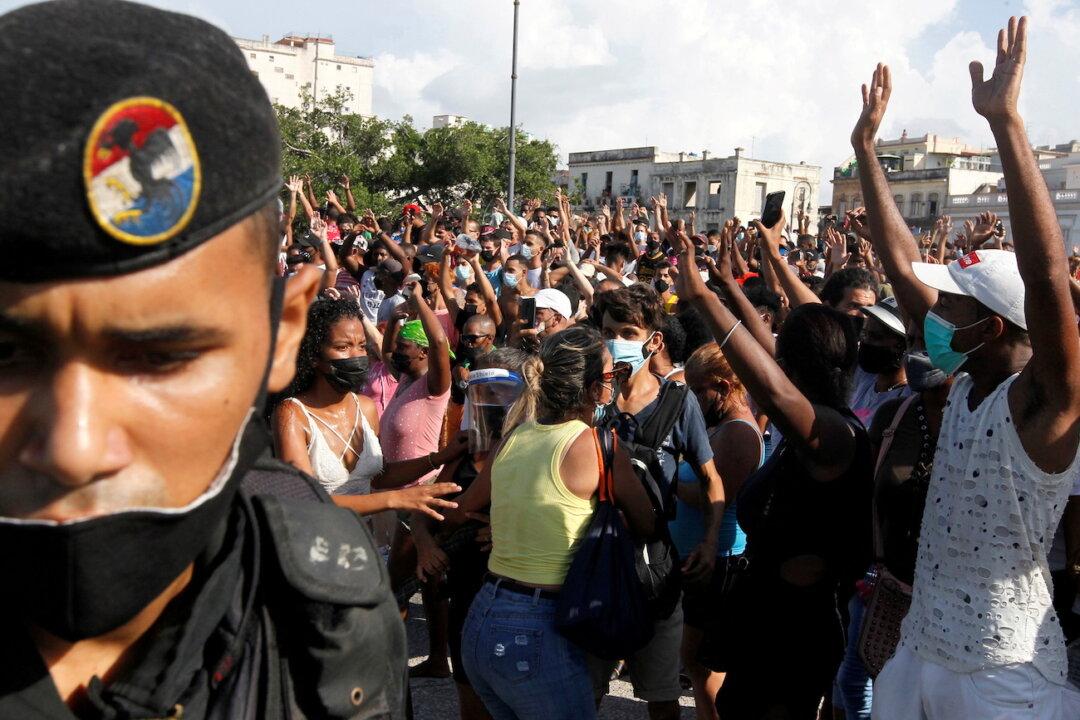Black Lives Matter is blaming the U.S. government’s “cruel and inhumane” economic embargo for the current unrest in Cuba, while praising the communist regime for its “solidarity” by granting asylum to “black revolutionaries.”
The Marxist organization has faced strong criticism since posting a statement on July 14 in response to protests that have erupted in multiple cities across Cuba, where demonstrators have called for greater freedoms and an end to leader Miguel Díaz-Canel’s authoritarian regime.





